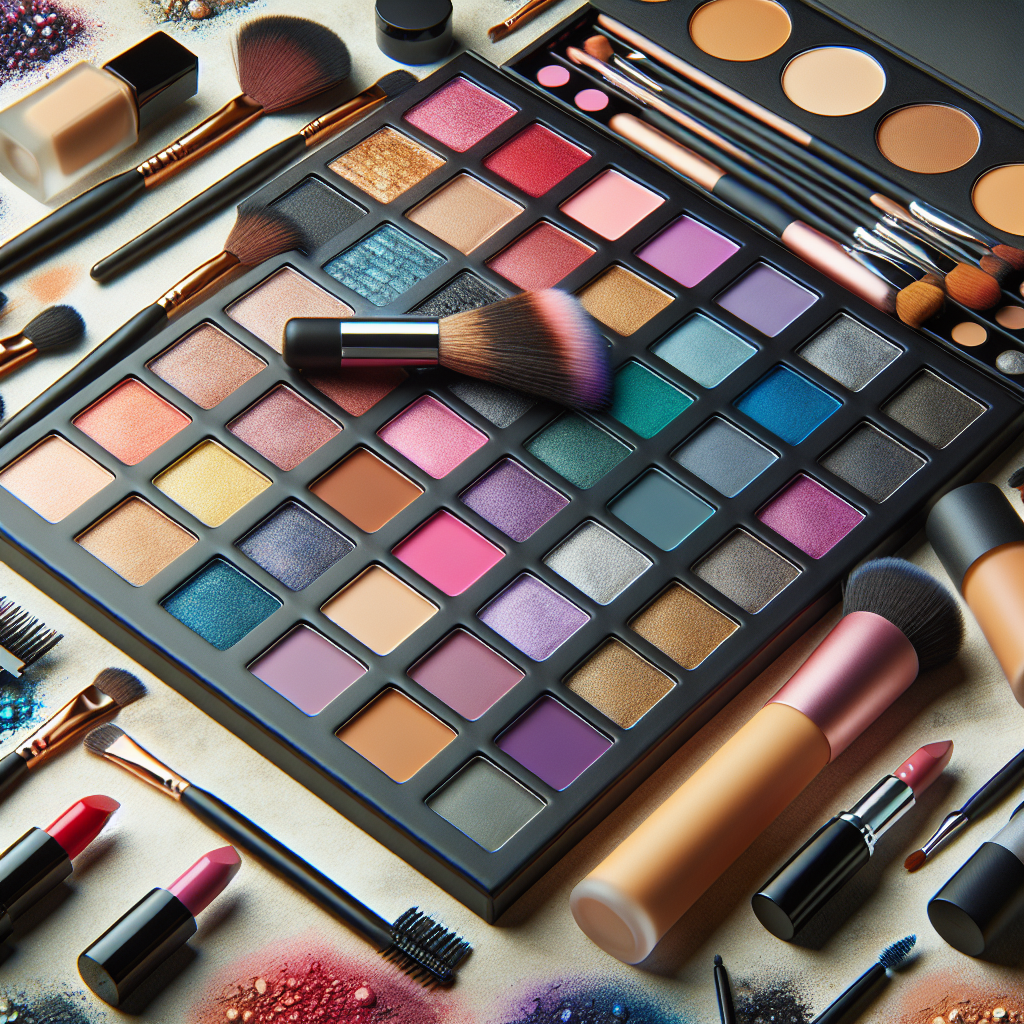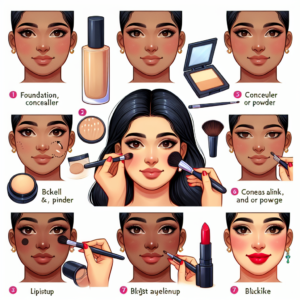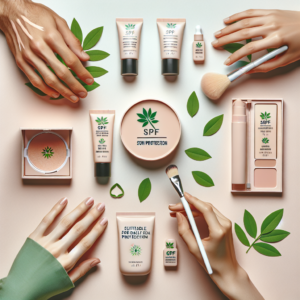
Key Takeaways
-
SPF vegan hypoallergenic makeup is essential for sensitive skin, providing protection without irritation.
-
Understanding the term ‘hypoallergenic’ helps in choosing products that are less likely to cause allergic reactions.
-
Key ingredients to look for include zinc oxide, titanium dioxide, and soothing botanicals.
-
Avoid ingredients like fragrances, parabens, and certain alcohols that can trigger sensitivity.
-
Clinique, Sunforgettable, and Neutrogena are among the top brands offering SPF vegan hypoallergenic makeup suitable for sensitive skin.
Why SPF Vegan Hypoallergenic Makeup Rules the Game
When it comes to sensitive skin, the rules of the game are clear: protect and pamper. SPF vegan hypoallergenic makeup does just that. It’s not just about looking good; it’s about feeling good and keeping your skin safe from the sun’s harmful rays and potential allergens. And let’s face it, no one wants the dreaded redness, itching, or breakouts that can come with the wrong makeup choices.
Most importantly, choosing vegan hypoallergenic makeup means you’re using products free from animal-derived ingredients and harsh chemicals. This is not just a win for your skin but also for the environment and our furry friends. Besides that, the addition of SPF is a non-negotiable in today’s skincare regime. It shields your skin from photoaging and helps prevent skin cancer.
Decoding Labels: What Exactly Does Hypoallergenic Mean?
Hypoallergenic: it’s a term you see everywhere, but what does it really mean? In the simplest terms, hypoallergenic makeup is designed to reduce the risk of allergic reactions. These products are often free from common irritants like fragrances and certain preservatives. But beware, the term isn’t regulated by the FDA, which means it’s up to us to read labels and understand what we’re putting on our skin.
Therefore, when you see ‘hypoallergenic’ on a product, take a moment to check the ingredient list. Look for clear indications of what’s not in the formula—like ‘fragrance-free’ or ‘paraben-free’. This due diligence can save you from a skin catastrophe down the line.
Glow Without the Woe: Selecting Makeup for Sensitive Skin
Choosing makeup for sensitive skin can feel like navigating a minefield. You want the glow without the woe—meaning, you want to look radiant without any skin distress. The key is to look for products specifically designed with sensitive skin in mind, which often means they’re hypoallergenic and non-comedogenic, meaning they won’t clog your pores.
Spotting Skin Savers: Ingredients to Look For
Let’s talk about the good guys—the ingredients that are your skin’s best friends. When you’re browsing the makeup aisle, keep your eyes peeled for:
-
Zinc oxide and titanium dioxide: These mineral sunscreens are gentle on the skin and provide broad-spectrum UV protection.
-
Plant-based squalane and aloe vera: These soothe and hydrate the skin, reducing the chance of irritation.
-
Chamomile: Known for its calming properties, chamomile can help soothe redness and irritation.
With these ingredients, you’re on the right track to finding makeup that loves your skin as much as you do.
The Nix List: Ingredients to Avoid for Sensitive Skin
Just as important as what to look for is what to avoid. Certain ingredients are notorious for causing trouble on sensitive skin. Steer clear of:
-
Fragrances: They might smell nice, but they’re a common cause of allergic reactions.
-
Parabens: These preservatives can disrupt hormone function and irritate the skin.
-
Alcohols: Not all alcohols are bad, but some, like isopropyl alcohol, can be drying and irritating.
Remember, your skin’s comfort is paramount. If a product makes your skin unhappy, it’s not worth the hassle, no matter how trendy it is.
The 2023 Lineup: Cream of the Crop Makeup Products
This year’s lineup of SPF vegan hypoallergenic makeup is more exciting than ever. With innovative formulas and skin-loving ingredients, these products are set to revolutionize the way we think about beauty and skin care. They promise not only to enhance your natural beauty but also to protect your skin from environmental stressors.
Solar Defense: Best SPF-Packed Foundations
For those of us with sensitive skin, finding a foundation that offers both coverage and sun protection without causing irritation can feel like striking gold. Here are some top picks that do just that:
-
Clinique Even Better Makeup SPF 15: This foundation is a godsend for those with sensitive skin, offering a blend of sun protection and skin care benefits.
-
Neutrogena Healthy Skin Liquid Makeup Foundation SPF 20: Lightweight and infused with antioxidants, it’s perfect for daily wear.
-
Tarte Amazonian Clay 12-Hour Full Coverage Foundation SPF 15: A vegan formula that lasts all day and helps control oil production.
Lush Lips: Leading Vegan-Friendly Lip Products with SPF
Your lips need protection too, and thankfully, there are plenty of SPF-infused lip products that cater to sensitive skin while also being vegan. Here’s a glimpse at some of the best on the market:
Colorscience Sunforgettable Lip Shine SPF 35: This gloss not only provides a beautiful shine but also a high level of sun protection, perfect for sunny days out.
And don’t forget, reapplying lip products with SPF throughout the day is crucial for maintaining protection—especially after eating or drinking.
Eye Love: Gentle Eye Makeup with the Goodness of Sun Protection
The skin around our eyes is incredibly delicate, which is why it’s essential to choose eye makeup that’s gentle and protective. Look for eyeshadows and mascaras that are labeled as hypoallergenic and have SPF. While SPF eye makeup is less common, you can always layer with an SPF eye cream for added protection.
Application Techniques: Maximize Benefits While Minimizing Risks
Applying makeup is an art, especially when you’re dealing with sensitive skin. The key is to apply makeup in a way that maximizes its benefits while minimizing the risk of irritation. Always start with a clean, moisturized face, and use tools that are gentle on the skin, like soft brushes or sponges.
Start Clean: Prepping Your Skin for Makeup
A clean canvas is essential for any masterpiece, including your makeup look. Always begin with a gentle cleanser suitable for sensitive skin to remove impurities and any traces of makeup from the previous day. Follow up with a hypoallergenic moisturizer to hydrate your skin and create a smooth base for makeup application.
Layer Smart: How to Apply Makeup Without Irritating Skin
When it comes to layering your makeup, less is often more. Use a light hand and build coverage gradually. This approach not only prevents caking but also reduces the amount of product that comes into contact with your skin, minimizing the potential for irritation.
Seasonal Shifts: Adapting Your Makeup Routine Throughout the Year
As the seasons change, so should your makeup routine. During summer, you might want to amp up your SPF and opt for lighter, more breathable formulas. In the winter, focus on moisture-rich products that protect against the harsh, dry air.
Summer: Amplifying SPF Usage for Extra Protection
In the summer months, the sun is more intense, so it’s crucial to increase your SPF protection. Besides your regular SPF makeup, always apply a broad-spectrum sunscreen as part of your skincare routine. Reapply every two hours when outdoors to ensure continuous protection.
And remember, the sun can still damage your skin on cloudy days, so don’t skip the SPF, even when the sky is overcast.
Winter brings its own challenges, with cold air and indoor heating drying out your skin. Look for makeup products that offer hydration along with coverage, like tinted moisturizers with SPF. And always layer with a good moisturizer or serum to keep your skin supple and protected.
Adapting your makeup routine to the changing seasons will not only keep your skin looking its best but also ensure it’s protected year-round.
FAQs
Can SPF makeup replace my regular sunscreen?
While SPF makeup adds a layer of protection, it should not replace your regular sunscreen. Makeup is typically applied unevenly and in thinner layers than sunscreen, which means it might not provide sufficient protection. For the best defense against the sun, apply a broad-spectrum sunscreen as your base and use SPF makeup as an additional protective layer.
How can I test if a makeup product is truly hypoallergenic?
To test if a makeup product is suitable for your sensitive skin, conduct a patch test. Apply a small amount of the product to a discreet area of skin, like behind the ear or on the inside of the wrist, and wait 24 to 48 hours. If there’s no reaction, it’s likely safe for you to use. However, keep in mind that ‘hypoallergenic’ isn’t a regulated term, so always check the ingredients list for known irritants.
Why should I choose vegan makeup even if I’m not vegan?
Opting for vegan makeup means you’re choosing products that do not contain animal-derived ingredients, which are often gentler on the skin. Additionally, vegan makeup is often created with a focus on sustainability and ethical practices, making it a choice that benefits both your skin and the environment.
How often should I reapply SPF makeup for effective protection?
SPF makeup, like any sun protection product, should be reapplied approximately every two hours, especially if you’re spending time outdoors. Remember that activities like sweating, swimming, or towel-drying can remove the product from your skin, so you may need to reapply more frequently in those cases.
Finding makeup that caters to sensitive skin can be a challenge, but it’s not impossible. In 2023, there are a plethora of options for those seeking SPF vegan hypoallergenic makeup that won’t irritate the skin or cause allergic reactions. These products are specifically formulated to be gentle and are often recommended by dermatologists.




